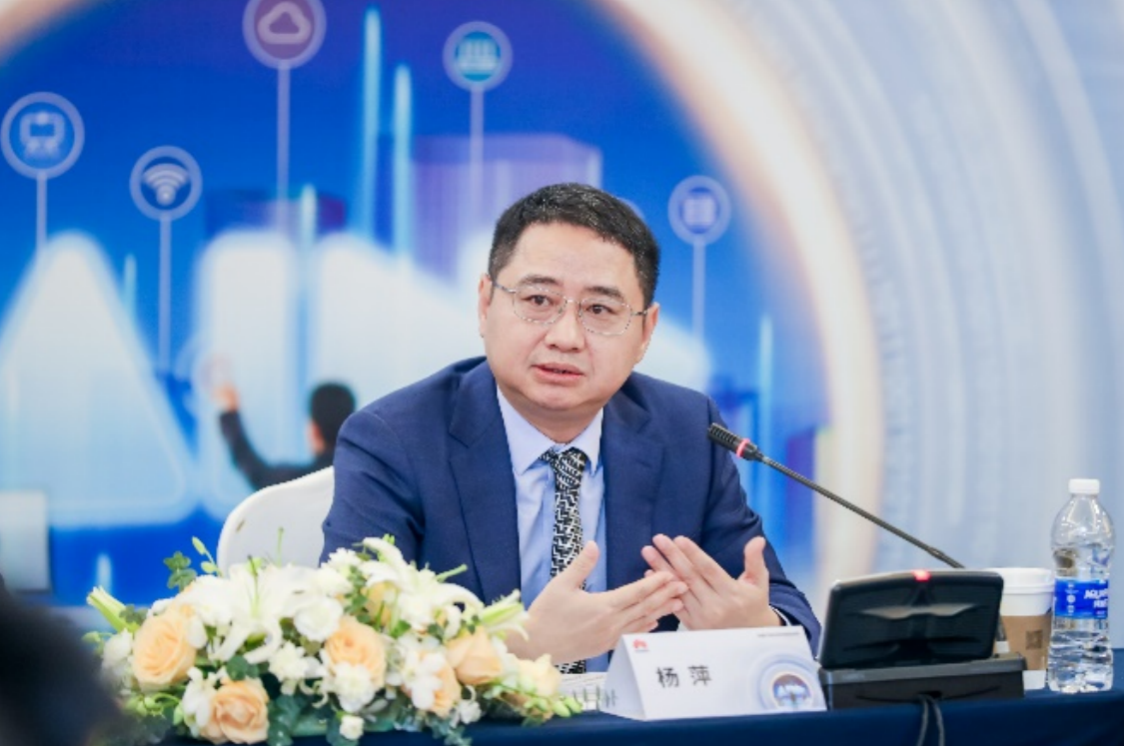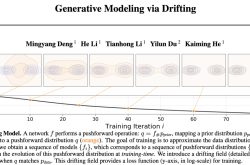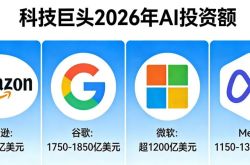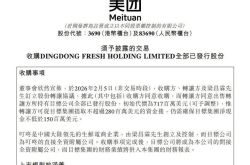Huawei Yang Ping: Embrace Digital Intelligence to Inject New Momentum into the High-quality Development of the Manufacturing Industry
![]() 12/06 2024
12/06 2024
![]() 599
599
In the national strategic blueprint for digital transformation and intelligent upgrading, the manufacturing industry has been assigned an important role, and digital intelligence transformation has become the only way for enterprises to achieve high-quality development. As a global leader in ICT (Information and Communication Technology) infrastructure, Huawei has not only achieved remarkable success in its own digital intelligence transformation but has also extended the "Huawei Power" to the field of smart manufacturing, empowering its partners in their intelligent upgrading and pushing industry enterprises towards a new stage of digital intelligence.
Recently, Yang Ping, General Manager of Huawei's China Government and Enterprise Smart Manufacturing System Department, shared Huawei's latest insights and practices in the field of smart manufacturing. She elaborated on how Huawei stimulates the innovative vitality of the manufacturing industry through digital and intelligent transformation. Huawei's 30 years of experience in ICT and digital intelligence transformation have been transformed into a powerful driving force for external services, enabling it to join hands with manufacturing customers to face the challenges and opportunities of intelligence.

Yang Ping, General Manager of Huawei's China Government and Enterprise Smart Manufacturing System Department
Yang Ping's speech provides us with insight into Huawei's role in facilitating the digital intelligence transformation of the manufacturing industry. Next, let's delve into Huawei's practices and strategic thinking in promoting the digital intelligence transformation of the manufacturing industry.
unsetunsetInheritance and Innovation
Huawei's Manufacturing Genes and Digital Transformationunsetunset
Huawei, a company born from and deeply understanding manufacturing, is a manufacturing enterprise with strong R&D capabilities. Its business scale is impressive—operating in over 170 countries and regions globally, serving hundreds of operators and tens of thousands of enterprises annually, with industries spanning ICT, cloud computing, digital energy, terminals, and more.
It is unimaginable to handle such a vast and complex business chain without adopting digital and intelligent management methods.
Since the 1990s, Huawei has been undergoing transformations in IT construction and business management, gradually establishing an informatized IT system from IPD R&D process management to ISC supply chain management. In 2014, Huawei officially launched its digital transformation, aiming to achieve business goals while ensuring that the company's expansion does not spiral out of control.
Huawei's digital transformation started with establishing a full-element connection and real-time feedback system, optimizing business processes and significantly enhancing efficiency through data governance and security system construction.
According to Yang Ping, on the full-element connection and real-time feedback system, Huawei has achieved full connectivity of over 6 million end-side equipment, more than 40 communication protocols, and equipment from over 100 manufacturers in the production process, laying a foundational role in subsequently integrating production data across factories. This full-element connection and real-time feedback system enable Huawei to realize real-time monitoring and analysis of production data globally, providing strong data support for production decision-making.
Huawei's digital transformation does not stop at connectivity and data governance but further strengthens the construction of the security system. By establishing host fences, network fences, application fences, data fences, etc., it ensures data security and achieves effective defense against attacks and dangers.
The results of this transformation are remarkable, reflected in the doubling of revenue and a limited increase in employee numbers—revenue grew from nearly 400 billion in 2015 to 890 billion in 2020, while the number of employees only increased from 179,000 to 197,000, demonstrating the positive effects of digital transformation.
unsetunsetDigital Transformation
AI Adds Intelligence to Smart Manufacturingunsetunset
With the global wave of artificial intelligence, simple digital transformation is no longer sufficient to support rapid corporate development. Recognizing this trend, Huawei comprehensively launched an AI strategy in 2018, integrating intelligent and digital advantages into its development blueprint.
Guided by this strategy, Huawei fully implemented the model of "R&D, production, supply, sales, service + AI + data," introducing large model technology into various business areas, reconstructing operational models, and achieving an upgrade from one T (data platform and data governance) in the digital transformation era to two Ts (adding AI model and platform services, as well as AI governance and security) in the intelligent era. Simultaneously, Huawei upgraded its AI data governance system to ensure high-quality AI data, providing safe and efficient support for model training and application, further consolidating its leading position on the path of intelligent upgrading.
Yang Ping demonstrated Huawei's practical achievements in digital intelligence transformation through specific practices in R&D, production, supply chain, and other aspects.
In R&D and design, Huawei has transitioned from traditional programmers manually testing code to automated and intelligent processing. By integrating key technical documents, selected code, and R&D data into the R&D data platform and constructing four major databases—object library, rule library, process library, and model library—Huawei has significantly shortened the software version development cycle through extensive use of AI assistance and automatic code writing; the development environment has shifted from manual setup to automatic setup through model invocation, significantly improving efficiency; and product management has transitioned from manual requirement transmission to automatic requirement transmission, avoiding errors.
In production execution, Huawei significantly improved factory agility, efficiency, and productivity by cleaning and training data required for the entire process, including market order data, R&D code, warehousing and logistics data, and production line equipment data, using large model technology and data governance. For example, Huawei utilizes an order system to automatically screen and retrieve material information, enabling AI-based automatic material picking and dispatch. Every process on the production line undergoes AI quality inspection and analysis, significantly enhancing quality inspection effectiveness and efficiency. What used to require 80 people on a high-end mobile phone production line now only needs 14, producing one phone every 20 seconds.
In logistics and supply, AI application can achieve an optimal balance between supply guarantee, inventory cost, and production equilibrium. Huawei has built the Lingkun Digital Intelligence Cloud Brain in the supply chain field, aggregating data from suppliers, factories, warehousing and logistics, and customer sites. Through large models, it conducts automatic container loading simulations, loading simulations, optimal route simulation risk assessments, and inventory optimization, achieving end-to-end optimization and full-process visibility and controllability in smart logistics.
unsetunset"Huawei Power" Spillover
Collaborating with Partners to Promote the Intelligent Leap of the Manufacturing Industryunsetunset
Huawei's practices in smart manufacturing are not limited to its digital and intelligent transformation but also extend "Huawei Power" to a broader manufacturing field through cooperation with various industries.
Huawei collaborates with partners in production, education, and research in the field of smart manufacturing, as well as with over 30 standards/association organizations and 72 "Smart Base" universities, serving over 7,500 manufacturing enterprises nationwide across industries such as automobiles, equipment manufacturing, electronics, home appliances, pharmaceuticals, heavy industry, tobacco, and new energy, jointly advancing the smart manufacturing process.
Globally, the automotive industry has become the world's largest industrial sector, known as the "pearl" of manufacturing. Huawei's profound strength and experience in manufacturing digital intelligence transformation help automotive enterprises connect engineering data flows, business information flows, and production supply flows, allowing data to flow freely in factories and participate in production as needed. This realizes controllable and visible production processes, significantly improving automation rates, equipment intelligent maintenance levels, quality traceability and optimization capabilities, and energy consumption management, thereby enhancing corporate competitiveness. The cooperation results between Huawei and automakers such as Changan, GAC, and FAW are testament to this.
Huawei also extends its digital intelligence transformation capabilities to various manufacturing sub-sectors, such as the burgeoning robotics field. By reshaping the structured R&D process of robotics enterprises through IPD, Huawei helps leading robotics enterprises improve R&D and manufacturing stability, reducing R&D costs.
Biomedicine is also an emerging industry that the country is vigorously developing. In this field, Huawei provides the Pangu Pharmaceutical Molecule Large Model, which leverages AI's powerful scientific computing and simulation capabilities to help pharmaceutical companies achieve remarkable results in drug molecule structure discovery, clinical trials, and genetic trait analysis, significantly shortening the new drug development cycle.
It is worth mentioning that Huawei and its customers have jointly created a large model for the manufacturing industry, supporting China's manufacturing intelligence upgrade. This model includes a computing power base layer, AI architecture layer, AI framework layer, AI platform layer, AI model layer, and AI application layer, providing a solid foundation for the intelligent upgrade of the manufacturing industry.
It can be said that when enterprises seek digital intelligence transformation partners, Huawei is undoubtedly a top choice. Huawei has gone through the entire process of enterprises transitioning from informatization to digitalization and then to digital intelligence, possessing not only full-stack technical capabilities and rich solutions but also profound process experience and methodology. It deeply understands enterprise needs in business scenarios, provides reliable technical support for solution implementation, and builds innovative synergy with ecological partners in end-to-end applications, demonstrating Huawei's unique advantage as a "fellow traveler".
Yang Ping stated that Huawei hopes to empower every manufacturing enterprise with digital and intelligent capabilities, contributing to China's transformation from a manufacturing powerhouse to a manufacturing power. Huawei's commitment is firm, adhering to the value proposition of "deeply cultivating manufacturing and letting intelligent manufacturing take root." It will continue to deeply cultivate technology, experience, and ecosystem as always, providing solid support for the digital transformation and intelligent upgrading of the manufacturing industry.
Smart manufacturing holds great potential, and China's transformation from a manufacturing powerhouse to a manufacturing power is unstoppable. We have reason to believe that in the future chapter of smart manufacturing, Huawei will play an indispensable role, continuously contributing "Huawei Wisdom" and "Huawei Power" to the manufacturing industry and embracing a bright future of digital intelligence with global partners.








